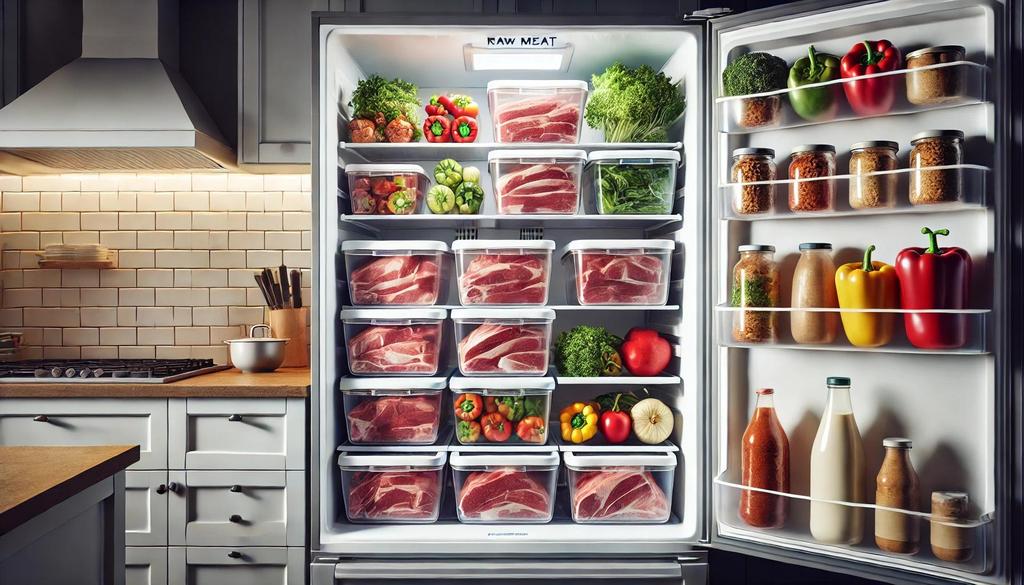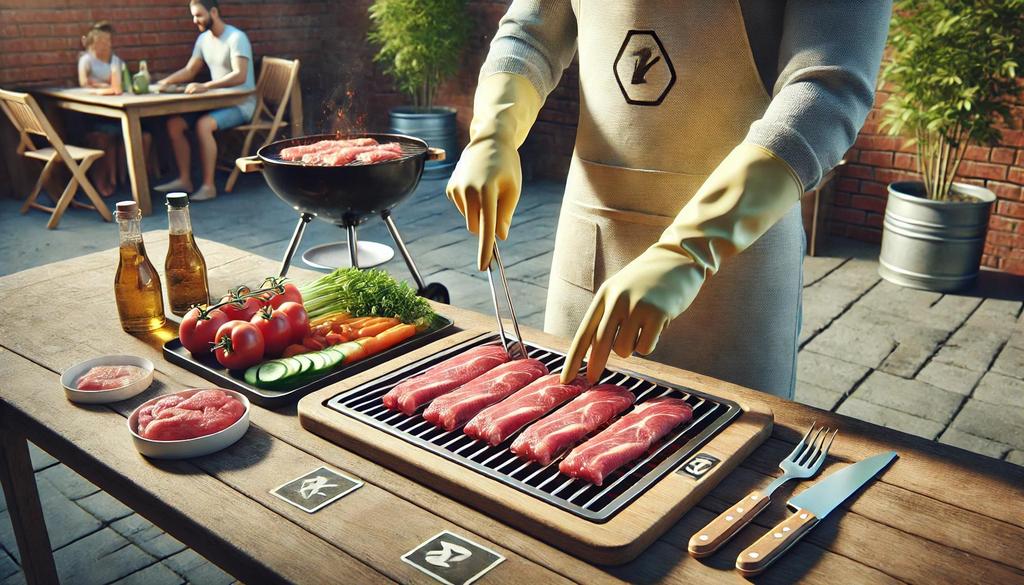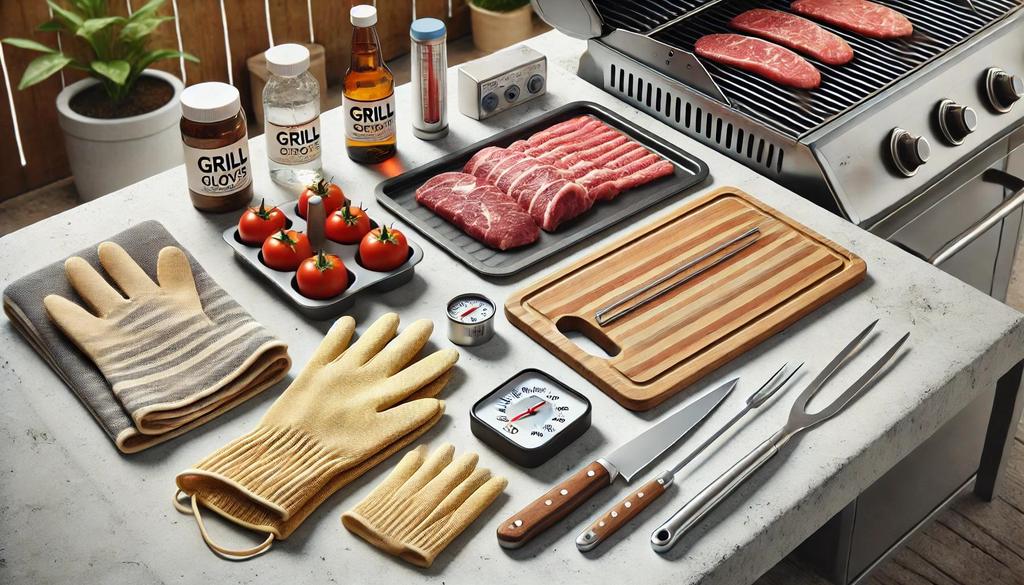Grilling can be a delightful culinary experience, but it demands meticulous attention to food safety, particularly when handling raw meat. Ignoring proper precautions can lead to the rapid spread of bacteria, posing a significant risk of foodborne illnesses.
The Centers for Disease Control and Prevention (CDC) emphasizes the critical importance of safe food handling. Begin by thoroughly washing your hands before and after dealing with raw meat. This simple yet crucial step helps eliminate harmful bacteria from your skin, ensuring a safer cooking environment.
Equally important is the sterilization of all cooking utensils, cutting boards, and surfaces that come into contact with raw meat. By doing so, you significantly reduce the risk of cross-contamination, safeguarding both your health and the well-being of your guests. Remember, maintaining strict food safety measures extends beyond just grilling—it guarantees peace of mind and an enjoyable dining experience.
Explore these tips for safely handling and cooking raw meat on the grill. They will help ensure your grilling sessions are not only enjoyable but also hygienic and risk-free.
Choosing the Proper Equipment
Proper equipment plays a vital role in ensuring food safety when grilling raw meat. Utilizing separate cutting boards for raw meat and another for vegetables or ready-to-eat foods is essential. This practice effectively prevents potential bacteria from spreading to other foods, maintaining a hygienic cooking environment.
Investing in a reliable meat thermometer is another smart choice. It provides an accurate reading of the meat’s internal temperature, helping ensure meats like ground beef reach 160°F and poultry reaches 165°F, indicating they are safely cooked.
Additionally, using grill gloves protects hands from hot surfaces, enhancing both safety and control during grilling sessions. By employing these essential tools, maintaining food safety during grilling becomes seamless and assured.
Safe Marinating of Meat
Marinating raw meat not only enhances flavor but also requires strict attention to safety. Always marinate meats in the refrigerator rather than leaving them at room temperature on the counter. Room temperatures can foster bacterial growth, increasing the risk of contamination if the meat is left exposed.
For those who plan to use the marinade as a sauce later, reserve a portion before introducing the raw meat. This precaution prevents the sauce from becoming contaminated with bacteria from the uncooked meat.
Lastly, ensure the marinated meat is promptly cooked upon completion of its resting period. This immediate action minimizes the risk of foodborne illnesses, ensuring a safe and delicious meal.

Raw Meat Storage
Ensuring proper storage of raw meat before grilling is crucial for maintaining food safety. Keep raw meat refrigerated at 40°F or below, using its original packaging or a leak-proof container. This prevents juices from contaminating other food products.
For leftovers, refrigerate within two hours of cooking. Place grilled leftovers in airtight containers and consume them within three to four days to ensure maximum safety.
When in doubt about meat quality, trust your instincts. If there is an unusual odor or discoloration, it is best to discard the meat to avoid any health risks.
Cooking Methods for Safety
Grilling requires specific techniques to ensure meat is safe for consumption. Begin by thoroughly preheating the grill before placing raw meat on it. This initial step helps eliminate any bacteria that might reside on the grill surface.
For larger cuts of meat, employ indirect grilling techniques. This approach prevents exterior burning while ensuring thorough internal cooking. Creating dual heat zones—high for searing and low for finishing—enhances control over the grilling process.
A reliable meat thermometer is indispensable, providing certainty about when the meat has reached safe cooking temperatures. Regular maintenance and BBQ repair are also critical to guarantee its optimal performance and safe grilling conditions.

Food Handling for Leftovers
Proper handling of leftovers is as crucial as safely cooking raw meat. Any grilled meat remaining after a meal should be promptly cooled and stored in the refrigerator.
For larger cuts of meat, slice them into smaller portions to expedite cooling. Once cooled, place the meat in airtight containers to minimize air exposure, the primary contributor to food spoilage.
Label each container with the date to track storage time. If the leftovers won’t be consumed within a few days, freezing is an excellent option for extending their usability while retaining safety and flavor.
Mastering Food Safety: Guidelines for Safe and Delicious Grilling
While grilling offers a delightful culinary experience, it demands meticulous attention to the handling and preparation of meat. Adhering to food safety guidelines is essential for achieving delicious and safe grilled meals. This involves using the right equipment, implementing proper storage techniques, and employing effective cooking methods.
Implementing these practices not only elevates the quality of your grilling sessions but also ensures the safety of both you and your guests. By prioritizing food safety, each meal can be enjoyed with confidence and peace of mind.




